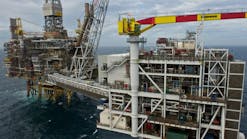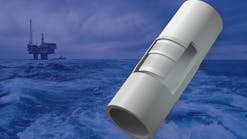Neptune prioritizing lower carbon oil and gas developments
Offshore staff
LONDON – Neptune Energy is stepping up plans for North Sea storage of carbon dioxide (CO2) emissions.
The company is progressing two carbon capture and storage (CCS) developments in the Dutch and UK sectors of the North Sea that could collectively store more than 9 MM metric tons/yr (9.92 MM tons) of carbon dioxide (CO2) emissions for third parties by the end of this decade.
This would exceed the company’s projected direct emissions (Scope 1) and emissions from the use of its sold products (Scope 3).
Where economic, and where the regulatory regime is supportive, Neptune will pursue electrification to decarbonize some of its highest producing assets (in the short term, its focus will be on Norway).
At the same time, it will target further production in its key producing regions, maintaining its gas-weighted portfolio and lower carbon intensity. But it will prioritize new gas and oil developments consistent with its lower carbon strategy, and others that provide opportunities to integrate energy systems.
By the end of this year, over 35,000 boe/d of the company’s net annual production should be electrified, rising potentially to around 50,000 boe/d by 2027.
Other priorities include extending the life of its offshore assets and repurposing them to facilitate CO2 storage and hydrogen production, using domestic, lower carbon intensive gas or wind power.
By extending field life, electrification could become more economic, Neptune said, helping to decarbonize existing production further.
One joint venture is the L10 CCS project in the Dutch North Sea, which could store up to 5 MMt of carbon annually. The project could be FEED-ready by the end of 2022, followed by a final investment decision in 2023, and first carbon injection in 2026.
Neptune is also pursuing a CCS storage and appraisal license in the UK, and other potential opportunities in the UK and Norway.
The carbon intensity of its operated portfolio, at 6kg CO2/boe, is ahead of the industry average of 15 kg CO2/boe, the company claimed, adding that the methane intensity of its operated production is 0.02%, below the industry average of 0.20%.
Neptune is targeting net zero methane emissions by 2030.
3/1/2022





